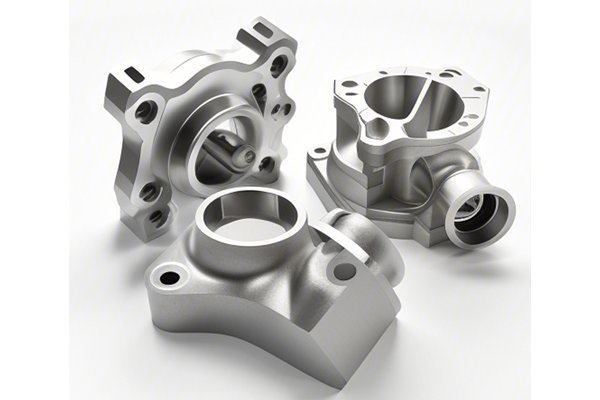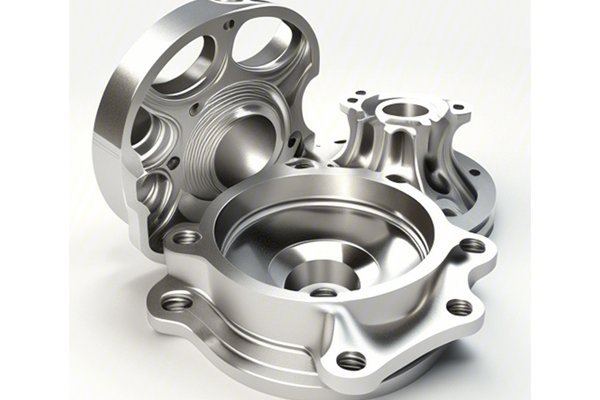Did you know that the global CNC machining market is expected to reach a staggering $100 billion by 2025? This explosive growth showcases the ever-increasing demand for precision engineering and customizable solutions across multiple industries. Whether in aerospace, automotive, healthcare, or consumer goods, CNC (Computer Numerical Control) machining is revolutionizing how products are manufactured, designed, and delivered.
In today’s fast-paced manufacturing landscape, businesses face a unique set of challenges when it comes to product development. They need to find the right balance between cost, efficiency, customization, and quality. This is where CNC machining shines, offering adaptable solutions that cater to the specifications and needs of various industries.
In this blog, we will explore the myriad benefits of CNC machining for customizable products, how it addresses key challenges in manufacturing, and why it should be an essential part of your production strategy.
The Rise of CNC Machining
CNC machining emerged in the mid-20th century as a way to automate the process of machining. Unlike traditional methods that rely heavily on manual processes, CNC machining uses computer-controlled tools to create precise components from a range of materials, including metals, plastics, and composites. This shift not only marked the dawn of efficiency in manufacturing but also laid the groundwork for customizability.
CNC machines can handle a wide variety of machining operations such as turning, milling, drilling, and electro discharge machining (EDM). Each of these processes can be customized to suit specific production needs, allowing businesses to quickly adapt to market demands or customer requirements.
Key Benefits of CNC Machining for Customizable Products
One of the standout features of CNC machining is its ability to produce highly accurate components. CNC machines operate using advanced computer software and tools that guarantee consistency and precision. This benefit is particularly important for industries like aerospace and healthcare, where even the slightest deviation can have catastrophic consequences.
The ability to produce parts with tolerances as tight as ±0.001 inches means that customized products can be produced with reliability and assurance of quality. Moreover, the precision of CNC machining reduces material waste, further enhancing its cost-effectiveness.
In a market increasingly driven by individual customer preferences, customization has become a critical factor for business success. CNC machining offers unparalleled flexibility, allowing manufacturers to create parts in various shapes, sizes, and materials.
Whether you require a small batch of specific components or a one-off prototype, CNC machining is capable of delivering customized solutions promptly. Furthermore, thanks to advanced design software and rapid prototyping techniques, new designs can be brought to life quickly and efficiently.
Traditional machining methods often involve lengthy setups and manual adjustments, leading to long lead times and delays in production. CNC machining automates many of these processes, enabling manufacturers to significantly reduce their time-to-market.
Once the design is finalized, CNC machines can quickly and accurately produce the parts needed, irrespective of batch size. This efficiency means businesses can respond to market changes or shifts in customer preferences without incurring excessive costs or delays.
While CNC machining may have a higher initial setup cost when compared to conventional methods, it offers a compelling long-term return on investment. The automation of processes reduces labor costs, while precision machining minimizes material waste and rework expenses.
Moreover, the ability to produce high-quality parts at scale means that the overall cost per unit decreases with larger production runs. For businesses looking to stay competitive, CNC machining offers a practical and budget-friendly alternative.
CNC machining allows for the creation of components with geometries that would be impossible or impractical to produce using manual methods. The sophisticated tooling and programming capabilities enable manufacturers to design and fabricate intricate parts that meet specific design requirements.
This is especially useful in industries like aerospace and medical devices, where components must conform to complex geometrical specifications. The ability to produce such unique parts opens up a world of possibilities for product innovation and improved performance.
Quality assurance is paramount in manufacturing. CNC machines can integrate various quality control measures into the production process, from initial material inspections to final product testing.

By utilizing advanced software, manufacturers can monitor production metrics in real-time, ensuring that each part meets strict quality standards. Automated inspection processes can catch deviations early, reducing the chances of defective products reaching the market.
Challenges Addressed by CNC Machining
While the benefits are compelling, it’s essential also to understand the challenges that CNC machining addresses.
Businesses today need to respond to changes in consumer demand rapidly. CNC machining enables manufacturers to pivot easily, facilitating quick turnaround times for custom products. With the ability to produce parts based on customer specifications almost immediately, companies can maintain competitiveness and customer satisfaction.
The ability to scale production is crucial in today’s economy. CNC machining can switch between small batch production and large-scale manufacturing without significant changes in setup. This flexibility allows businesses to meet variable market demands while keeping costs in check.
CNC machining’s precision engineering contributes significantly to improved quality control. Automated systems minimize human error and ensure that generated parts consistently meet required specifications. Regular maintenance and calibration of machinery also enhance product reliability.
CNC machining is designed to minimize material waste, a factor that is increasingly important in sustainability-conscious markets. The automated and computer-controlled processes ensure that materials are used efficiently. This not only reduces costs but also aligns with environmentally friendly practices.
Real-World Applications of CNC Machining
CNC machining is utilized across a plethora of industries, and its applications continue to grow. Here are a few areas where CNC machining provides indispensable solutions.
Aerospace
In aerospace applications, precision and weight reduction are critical. CNC machining allows manufacturers to produce lightweight components with high strength-to-weight ratios that adhere to strict specifications and standards.
Automotive
The automotive sector benefits from CNC machining’s ability to manufacture custom parts for both performance vehicles and standard models. The automotive industry relies on CNC for everything from engine components to interior details, displaying a variety of components that require precision engineering.
Medical Devices
The medical industry must adhere to stringent quality and safety standards. CNC machining is ideal for producing high-precision parts that are both durable and reliable, such as surgical instruments and implants.
Consumer Electronics
In consumer electronics, the trend toward customization and rapid innovation creates a constant demand for CNC machining. Businesses can leverage CNC technology for producing unique housing and intricate internal components that meet specific consumer needs.
CNC machining represents a significant advancement in the world of manufacturing, providing invaluable solutions that meet modern demands for customization, precision, and efficiency. By emphasizing the benefits, such as enhanced customizability, improved lead times, and reduced costs, it is clear why this technology is becoming the preferred choice for manufacturers in various industries.
As businesses look for ways to stay competitive, embracing CNC machining for customizable products is not just a tactical decision but a strategic one. Understanding the benefits, addressing common challenges, and exploring the real-world applications will empower your manufacturing process to meet consumer expectations and thrive in today’s dynamic market.
In summary, CNC machining goes beyond mere functionality; it’s a transformative force that can redefine production methodologies and improve outcomes across multiple sectors. As you ponder over the benefits of CNC machining for your projects, consider how adopting this technology can propel your business forward, specializing in customizable solutions that meet the unique needs of your clients. The future of manufacturing is here, and CNC machining is leading the way.






